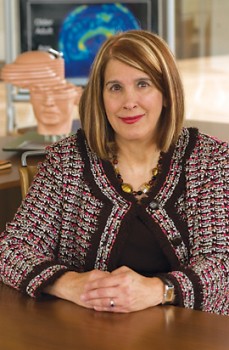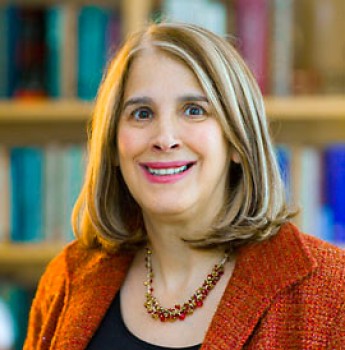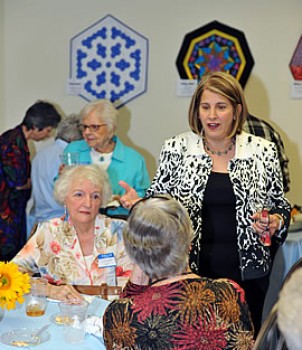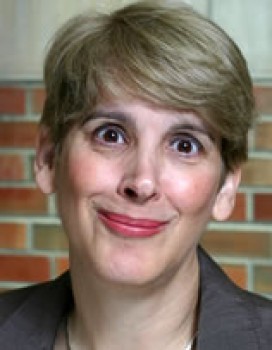
Denise Park
Distinguished University Chair in Behavioral and Brain Sciences
Professor
Director of Research of the Center for Vital Longevity
Regents' Research Scholar and Professor of Behavioral and Brain Sciences
Research Interests: Cognitive neuroscience of aging; preclinical Alzheimer’s disease; effect of an engaged lifestyle on cognition; cultural neuroscience
972-883-3255
VP 8.09
Center for Vital Longevity
Park Aging Mind Laboratory
Endowed Profile
Curriculum Vitae
Professional Preparation
Ph.D - Experimental Psychology
State University of New York at Albany - 1977
State University of New York at Albany - 1977
B.A. - Psychology
Albion College - 1973
Albion College - 1973
Research Areas
RESEARCH INTERESTS
Dr. Park focuses her research program on understanding how the mind changes and adapts as we age. She is interested not only in the function of the mind and brain, but in determining whether stimulation can maintain the health of the aging brain. She is also focusing on isolating a "neural signature" of middle-aged adults who will age with vitality versus those who are at greater risk of less adaptive cognitive aging.
Her research interests includes :
- The neuroscience of memory and aging
- Cognitive neuroscience of aging, and culture
- Cognition in medical settings and aging
- Social cognition and aging
Publications
Park, D.C. & McDonough, I. (In press). The dynamic aging mind: Revelations from
functional neuroimaging research. Perspectives in Psychological Science. in press - Publication
Kennedy, K.M., Rodrigue, K.M., Devous, M.D., Hebrank, A.C., Bischof, G.N. (in press).
Beta-amyloid burden is associated with altered functional activation during encoding
across the adult lifespan. Neuroimage. in press - Publication
Grossmann, I; Na, J; Varnum, ME; Park, DC; Kitayama, S; Nisbett, RE. (in press). Reasoning about social conflicts improves into old age. Proceedings of the National Academy of Sciences of the United States of America. ? - Publication
Park, J., Hebrank, A.C., Polk, T.A., & Park, D.C. (2012). Neural dissociation of number from
letter recognition and its relationship to parietal numerical processing. Journal of
Cognitive Neuroscience, 24, 39-50. 2012 - Publication
Huang, C.M., & Park, D.C. (2012). Cultural influences on Facebook photographs.
International Journal of Psychology. 2012 - Publication
Huang, C.M., Polk, T.A., Goh, J.O., & Park, D.C. (2012). Both left and right posterior
parietal activations contribute to compensatory processes in normal aging.
Neuropsychologia, 50, 55-66. 2012 - Publication
Peiying, L., Hebrank, A.C., Rodrigue, K.M., Kennedy, K.M., Park, D.C., & Lu, H. (2012). A
comparison of physiologic modulators of FMRI signals. Human Brain Mapping 2012 - Publication
Park, J., Park, D.C., & Polk, T.A. (2012). Investigating unique environmental contributions
to the neural representation of written words: A monozygotic twin study. PloS ONE,
7, e31512. 2012 - Publication
Appointments
Director & Professor & University of Texas Regents Research Scholar
The University of Texas at Dallas [2008–Present]
The University of Texas at Dallas [2008–Present]
Adjunct Professor of Psychiatry
The University of Texas Southwestern Medical School [2008–Present]
The University of Texas Southwestern Medical School [2008–Present]
T. Boone Pickens Distinguished Chair
The University of Texas at Dallas [2008–2010]
The University of Texas at Dallas [2008–2010]
Cognitive Division Chair
The University of Illinois at Urbana-Champaign [2002–2004]
The University of Illinois at Urbana-Champaign [2002–2004]
Director
The University of Illinois at Urbana-Champaign [2002–2007]
The University of Illinois at Urbana-Champaign [2002–2007]
Professor
The University of Illinois at Urbana-Champaign [2002–2007]
The University of Illinois at Urbana-Champaign [2002–2007]
Professor
The University of Illinois at Urbana-Champaign [2002–2007]
The University of Illinois at Urbana-Champaign [2002–2007]
Professor
The University of Michigan [1995–2002]
The University of Michigan [1995–2002]
Senior Research Scientist
The University of Michigan [1995–2002]
The University of Michigan [1995–2002]
Professor
The University of Georgia [1989–1995]
The University of Georgia [1989–1995]
Additional Information
Study Section Membership
- Chair, Cognition and Perception Study Section, National Institutes of Health, 2003-2006
- Member, Study Section, Cognition and Perception Study Section, National Institutes of Health, October 2001 to October 2003
- Chair, Study Section, Mental Disorders of Aging, National Institute of Mental Health, 1994 to 1996
- Member, Study Section, Mental Disorders of Aging, NIMH, June 1992 to 1994
- Member, Study Section, SBIR Vision Review Committee for the NIH, October 1994
- Member, Site Visit Team for University of Pittsburgh Alzheimer's Center, National Institute on Aging, October 1994
- Member, Special Study Section, National Institute of Health, Vision/Diabetes SBIR Grants, March 1993
- Ad Hoc Member, Study Section, National Institute of Mental Health Clinical Psychopathology Review Committee, February 1993
- Ad Hoc Member, Study Section, MRS Biomedical Research Special Review Panel, NIH, April 1991
- Ad Hoc Member, Study Section, National Institute of Mental Health Epidemiologic & Services Research, 1987
Editorships
- Science Editor, The American Psychologist, 1996 to present
- Associate Editor, The Journal of Gerontology: Psychological Sciences, 1995 to 1997
Editorial Boards and Review Committees
Member, Editorial Board:- Cognition, Aging, & Neuropsychology, 1998-present
- Gerontology, 1998-present
- Journal of Gerontology, 1984 to 1996
- Psychology and Aging, 1988 to 1997
- Perspectives on Psychological Science
News Articles
UT Dallas Researcher on International Panel Addressing Alzheimers Research
 For the first time in 27 years, revised criteria for the clinical diagnosis of Alzheimer’s disease have been published, along with a new research agenda for studying the earliest stages of the disease, before symptoms appear. Three expert workgroups spearheaded by the National Institute on Aging and the Alzheimer’s Association published their guidelines for clinicians and recommended research priorities in a series of articles available online April 19 and in the May 2011 print issue of Alzheimer’s & Dementia, the journal of the Alzheimer’s Association. The guidelines mark a significant change in how experts think about and study Alzheimer’s, said Dr. Denise Park, co-director of UT Dallas’ Center for Vital Longevity, who served on the 21-member international workgroup responsible for laying out the new research agenda.
For the first time in 27 years, revised criteria for the clinical diagnosis of Alzheimer’s disease have been published, along with a new research agenda for studying the earliest stages of the disease, before symptoms appear. Three expert workgroups spearheaded by the National Institute on Aging and the Alzheimer’s Association published their guidelines for clinicians and recommended research priorities in a series of articles available online April 19 and in the May 2011 print issue of Alzheimer’s & Dementia, the journal of the Alzheimer’s Association. The guidelines mark a significant change in how experts think about and study Alzheimer’s, said Dr. Denise Park, co-director of UT Dallas’ Center for Vital Longevity, who served on the 21-member international workgroup responsible for laying out the new research agenda.
Brain Scientist Appears in PBS TV Series on Aging
 Dr. Denise Park, director of UT Dallas’ newly formed Center for Vital Longevity, is a featured expert in a new public television documentary series exploring aging issues for baby boomers. Park’s research is aimed at understanding how the mind changes and adapts as individuals age. She is interested not only in evaluating brain function but also in figuring out whether stimulation can maintain the health of aging brains. The public television series, About Life (Part 2), is hosted by Robert Lipsyte, an Emmy winner and former New York Times columnist. The episodes include roundtable discussions, on-location field pieces, one-on-one interviews and video essays. Producers provide viewers with insights regarding health, finances, care giving, careers and other issues they will face as they pass into their senior years.
Dr. Denise Park, director of UT Dallas’ newly formed Center for Vital Longevity, is a featured expert in a new public television documentary series exploring aging issues for baby boomers. Park’s research is aimed at understanding how the mind changes and adapts as individuals age. She is interested not only in evaluating brain function but also in figuring out whether stimulation can maintain the health of aging brains. The public television series, About Life (Part 2), is hosted by Robert Lipsyte, an Emmy winner and former New York Times columnist. The episodes include roundtable discussions, on-location field pieces, one-on-one interviews and video essays. Producers provide viewers with insights regarding health, finances, care giving, careers and other issues they will face as they pass into their senior years.
Twins Study Looks at Genetic Influences on Thinking
A groundbreaking study by UT Dallas’ Center for Vital Longevity is focusing on twins in an effort to answer some long-debated questions about the rival influences of nature vs. nurture. Researchers are seeking participants for the Texas Twins Study, which tests the genetic component of neurocognitive development among young adults. The study uses functional MRI technology to investigate brain activity among pairs of identical and fraternal twins. Dr. Denise Park, director of the Center for Vital Longevity, is conducting this work in collaboration with Dr. Thad Polk, the Arthur F. Thurnau Professor of Psychology at The University of Michigan.Prof Seeks Link Between Leisure and Brain Fitness
 How can older adults stave off cognitive decline as they age? Can taking up hobbies improve cognitive function as we get older? UT Dallas neuroscientist Dr. Denise Park, one of the nation’s leading experts on the aging brain, is conducting a National Institutes of Health-funded study to find answers. To find what it takes to improve brain function in older people, Park, a UT System Regent’s Research Scholar and the T. Boone Pickens Distinguished University Chair in Clinical Brain Science, has recruited 400 Dallas residents over age 60 to participate in her “Synapse – Actively Engaging the Aging Mind” study. Synapse is designed to provide one of the first large-scale scientific investigations of the impact of stimulating leisure activities on the aging brain.
How can older adults stave off cognitive decline as they age? Can taking up hobbies improve cognitive function as we get older? UT Dallas neuroscientist Dr. Denise Park, one of the nation’s leading experts on the aging brain, is conducting a National Institutes of Health-funded study to find answers. To find what it takes to improve brain function in older people, Park, a UT System Regent’s Research Scholar and the T. Boone Pickens Distinguished University Chair in Clinical Brain Science, has recruited 400 Dallas residents over age 60 to participate in her “Synapse – Actively Engaging the Aging Mind” study. Synapse is designed to provide one of the first large-scale scientific investigations of the impact of stimulating leisure activities on the aging brain.
Denise Park Named T. Boone Pickens Distinguished Chair in Clinical Brain Science at UT Dallas
 Dr. Denise Cortis Park, a talented scientist in the booming field of cognitive research of the aging, will join The University of Texas at Dallas in January as the T. Boone Pickens Distinguished Chair in Clinical Brain Science. The $2 million endowed chair is part of the University's School of Behavioral and Brain Sciences, headed by Dr. Bert Moore. Park, who also will hold the title Regents' Research Scholar, will work closely with researchers in UT Dallas' Center for BrainHealth. Park's professional areas of interest include the neuroscience of memory and aging, as well as how cultural differences may affect patterns of neural activation. She is particularly interested in whether stimulating cognitive and social experiences can enhance brain function in older adults.
Dr. Denise Cortis Park, a talented scientist in the booming field of cognitive research of the aging, will join The University of Texas at Dallas in January as the T. Boone Pickens Distinguished Chair in Clinical Brain Science. The $2 million endowed chair is part of the University's School of Behavioral and Brain Sciences, headed by Dr. Bert Moore. Park, who also will hold the title Regents' Research Scholar, will work closely with researchers in UT Dallas' Center for BrainHealth. Park's professional areas of interest include the neuroscience of memory and aging, as well as how cultural differences may affect patterns of neural activation. She is particularly interested in whether stimulating cognitive and social experiences can enhance brain function in older adults.